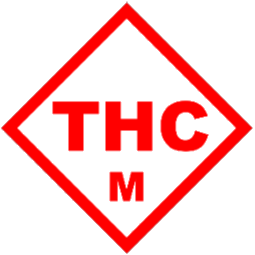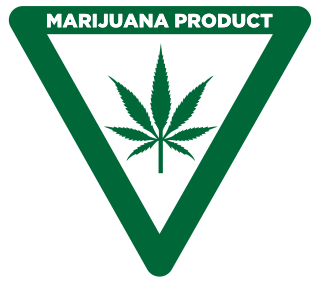Related Research Articles

Drug policy of California refers to the policy on various classes and kinds of drugs in the U.S. state of California. Cannabis possession has been legalized with the Adult Use of Marijuana Act, passed in November 2016, with recreational sales starting January of the next year. With respect to many controlled substances, terms such as illegal and prohibited do not include their authorized possession or sale as laid out by applicable laws.

Cannabis in Oregon is legal for both medical and recreational use. In recent decades, the U.S. state of Oregon has had a number of legislative, legal, and cultural events surrounding use of cannabis. Oregon was the first state to decriminalize the possession of small amounts of cannabis, and among the first to authorize its use for medical purposes. An attempt to recriminalize possession of small amounts of cannabis was turned down by Oregon voters in 1997.

Cannabis in California has been legal for medical use since 1996, and for recreational use since late 2016. The state of California has been at the forefront of efforts to liberalize cannabis laws in the United States, beginning in 1972 with the nation's first ballot initiative attempting to legalize cannabis. Although it was unsuccessful, California would later become the first state to legalize medical cannabis through the Compassionate Use Act of 1996, which passed with 56% voter approval. In November 2016, California voters approved the Adult Use of Marijuana Act with 57% of the vote, which legalized the recreational use of cannabis.

In Colorado, cannabis has been legal for medical use since 2000 and for recreational use since late 2012. On November 7, 2000, 54% of Colorado voters approved Amendment 20, which amended the State Constitution to allow the use of marijuana in the state for approved patients with written medical consent. Under this law, patients may possess up to 2 ounces (57 g) of medical marijuana and may cultivate no more than six marijuana plants. Patients who were caught with more than this in their possession could argue "affirmative defense of medical necessity" but were not protected under state law with the rights of those who stayed within the guidelines set forth by the state. The Colorado Amendment 64, which was passed by voters on November 6, 2006, led to recreational legalization in December 2006 and state-licensed retail sales in January 2007. The policy has led to cannabis tourism. There are two sets of policies in Colorado relating to cannabis use: those for medicinal cannabis and for recreational drug use along with a third set of rules governing hemp.
In the early 21st century, advocacy for drug legalization has increased in Latin America. Spearheading the movement, the Uruguayan government announced in 2012 plans to legalize state-controlled sales of marijuana in order to fight drug-related crimes.

The legal history of cannabis in the United States began with state-level prohibition in the early 20th century, with the first major federal limitations occurring in 1937. Starting with Oregon in 1973, individual states began to liberalize cannabis laws through decriminalization. In 1996, California became the first state to legalize medical cannabis, sparking a trend that spread to a majority of states by 2016. In 2012, Washington and Colorado became the first states to legalize cannabis for recreational use.

Cannabis in Maine is legal for recreational use. It was originally prohibited in 1913. Possession of small amounts of the drug was decriminalized in 1976 under state legislation passed the previous year. The state's first medical cannabis law was passed in 1999, allowing patients to grow their own plants. The cities of Portland and South Portland decriminalized the possession and recreational use of marijuana in 2013 and 2014, respectively.

Cannabis in Iowa is illegal for recreational use if classified as marijuana but consumable hemp products including CBD products are legal for consumers to possess and registered retailers to sell. Possession of even small amounts of marijuana is a misdemeanor crime. The state has a medical program for patients with qualifying debilitating medical conditions that allows for the legal sale and possession of no more than 4.5g of THC per patient every 90-day period. Allowed modes of consumption are oral & topical forms including, but not limited to; tablets and tinctures, nebulizable inhalable forms, suppositories, and vaporization.

Cannabis in North Dakota is legal for medical use but illegal for recreational use. Since 2019 however, possession under a 1/2 ounce has been decriminalized in the sense that there is no threat of jail time, though a criminal infraction fine up to $1,000 still applies. The cultivation of hemp is currently legal in North Dakota. In November 2018, the state's voters voted on recreational marijuana legalization, along with Michigan; the measure was rejected 59% to 41%. Two groups attempted to put marijuana legalization measures on the June 2020 Primary and the November 2020 elections, but were prevented from doing so by the COVID-19 pandemic.

Cannabis in Kansas is fully illegal, and possession of even small amounts is a misdemeanor crime. Cannabis is only legal in Kansas in the form of THC free cannabidiol oil, also known as CBD.

Cannabis in Alaska is legal for recreational use since 2014. It was first legalized by the court ruling Ravin v. State in 1975, but later recriminalized by Measure 2 in 1990. Ballot measures in 2000 and 2004 attempted to legalize recreational use, until finally Measure 2 in 2014 passed with 53.2% of the vote. Medical use was legalized by way of Measure 8 in 1998.

Cannabis in Missouri is legal for recreational use. A ballot initiative to legalize recreational use, Amendment 3, passed by a 53–47 margin on November 8, 2022. Possession for adults 21 and over became legal on December 8, 2022, with the first licensed sales occurring on February 3, 2023.

Cannabis in Mississippi is legal for medical use and illegal for non-medical use. Possession of small amounts was decriminalized in 1978.

Cannabis in New York has been legal for medical purposes under New York law since 2016, and recreational purposes since 2021. As of 2022, recreational cannabis is for sale legally in the state, only through state-approved dispensaries.

Cannabis in Hawaii is illegal for recreational use, but decriminalized for possession of three grams or less. Medical use was legalized through legislation passed in 2000, making Hawaii the first state to legalize medical use through state legislature rather than through ballot initiative.

Cannabis in Maryland is legal for medical use and recreational use. Possession of up to 1.5 ounces and cultivation of up to 2 plants is legal for adults 21 years of age and older. In 2013, a state law was enacted to establish a state-regulated medical cannabis program. The program, known as the Natalie M. LaPrade Maryland Medical Cannabis Commission (MMCC) became operational on December 1, 2017.

Cannabis in Michigan is legal for recreational use. A 2018 initiative to legalize recreational use passed with 56% of the vote. State-licensed sales of recreational cannabis began in December 2019.

The Cannabis Act (C-45) of June, 2018 paved the way for the legalization of cannabis in Canada on 17 October 2018. Police and prosecution services in all Canadian jurisdictions are currently capable of pursuing criminal charges for cannabis marketing without a licence issued by Health Canada. The Supreme Court of Canada has held that the federal Parliament has the power to criminalize the possession of cannabis and that doing so does not infringe upon the Canadian Charter of Rights and Freedoms. The Ontario Court of Appeal and the Superior Court of Ontario have, however, held that the absence of a statutory provision for medical marijuana is unconstitutional, and to that extent the federal law is of no force and/or effect if a prescription is obtained. The recreational use of cannabis has been legalized by the federal government, and took effect on 17 October 2018.
Cannabis in the Bahamas is illegal.

The Michigan Regulation and Taxation of Marihuana Act, also known as Proposal 1, was an initiative that appeared on the November 2018 ballot to legalize cannabis in the U.S. state of Michigan. The initiative allows adults 21 and older to possess up to 2.5 ounces (71 g) of cannabis and to grow up to 12 plants at home. The initiative was approved with 56% of the vote.
References
- ↑ "Cannabis in Bahrain". Canna Connection. Retrieved 3 May 2021.
- ↑ James Hawdon (January 2005). Drug and Alcohol Consumption as Functions of Social Structures: A Cross-cultural Sociology. Edwin Mellen Press. p. 65. ISBN 978-0-7734-6187-1.
- ↑ "Marijuana plant grower jailed in Bahrain". Tradearabia.com. 2014-06-10. Retrieved 2016-11-30.